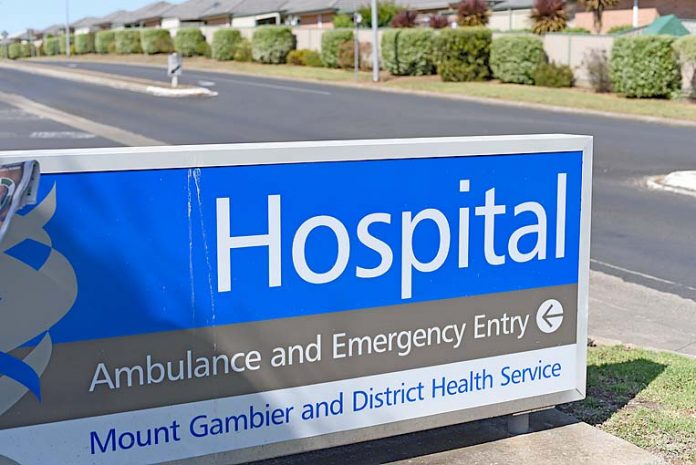MOUNT Gambier Hospital has yet to introduce on-site specific security personnel at the facility despite conducting a security review of the site.
The security probe canvassed what it says is a “best approach”, which included swipe card access, security cameras, duress alarms, code black procedures and police contacts.
Other measures include carpark lighting, secured nurses’ station and perimeter fencing.
The Mount Gambier Hospital management yesterday joined their statewide colleagues in declaring acts of violence and aggression towards nurses and midwives would not be tolerated.
Following recent violent incidents, immediate steps have been taken at some public hospitals with health authorities beefing up security measures.
The lack of on-site security personnel at Mount Gambier Hospital has previously triggered the state’s influential doctors union to weigh into the issue.
This followed a number of security-related matters at the state’s largest regional hospital, including “code black” incidents.
But the hospital management says it has “contracted staff” that are trained to deal with security incidents on site “at all times.”
Limestone Coast Local Health Network chief executive officer Ngaire Buchanan yesterday confirmed a security review had been conducted at the site.
“Mount Gambier Hospital is committed to providing high quality nursing and midwifery care to our patients, with the safety of both staff and patients being our first priority,” Ms Buchanan said.
“Intentional acts of violence and aggression towards nurses and midwives are not tolerated and we continue to look at ways to improve safety in our workplace.
“We have recently conducted a security review of the site, which includes looking at best practice approach for swipe card access, security cameras, duress alarms, code black procedure, police contacts, car park lighting, secured nurses’ stations and perimeter fencing.”
Managing actual and potential aggression training is also being rolled out to all front-line staff in the region.
The Limestone Coast Local Health Network will also be involved in the newly-formed statewide steering group.
SA Health Chief nurse and midwifery officer Jennifer Hurley said a dedicated high-level steering group had been established and would meet for the first time this week with the main focus to improve and strengthen safety of the entire workforce.
“Our number one priority is to provide a safe environment for our staff, patients and their families and any act of violence or aggression is inexcusable and will not be tolerated,” Ms Hurley said.
“Our hard-working nurses and midwives do an outstanding job caring for all patients, sometimes under difficult circumstances. As they provide care to others, we are determined to ensure they do not have to fear for their own safety.
“We are committed to providing high quality nursing and midwifery care to our patients and a raft of tailored safety measures will continue to be implemented across individual hospitals and health services across the state.”
“The steering group will build on the good work that has already been done across the system, address gaps and identify opportunities and innovative approaches to ensure ongoing improvements and safe work environments for all.
“It will comprise of senior leadership representatives from nursing and midwifery, medicine, allied health, mental health, as well as South Australian Ambulance Service and South Australia Police,” Ms Hurley said.
The steering group will review the current SA Health challenging behaviours strategy to ensure materials are clear, concise, targeted and support best practice, as well as developing awareness and education campaigns to address specific behaviours.
Following recent violent incidents, immediate steps were taken at public hospitals such as increased on-site security, as well as staff information sessions on personal and community safety and situational awareness, led by SAPOL.
Lighting, monitoring and functionality of security cameras, patrols and duress alarm use have also been reviewed across hospitals.








